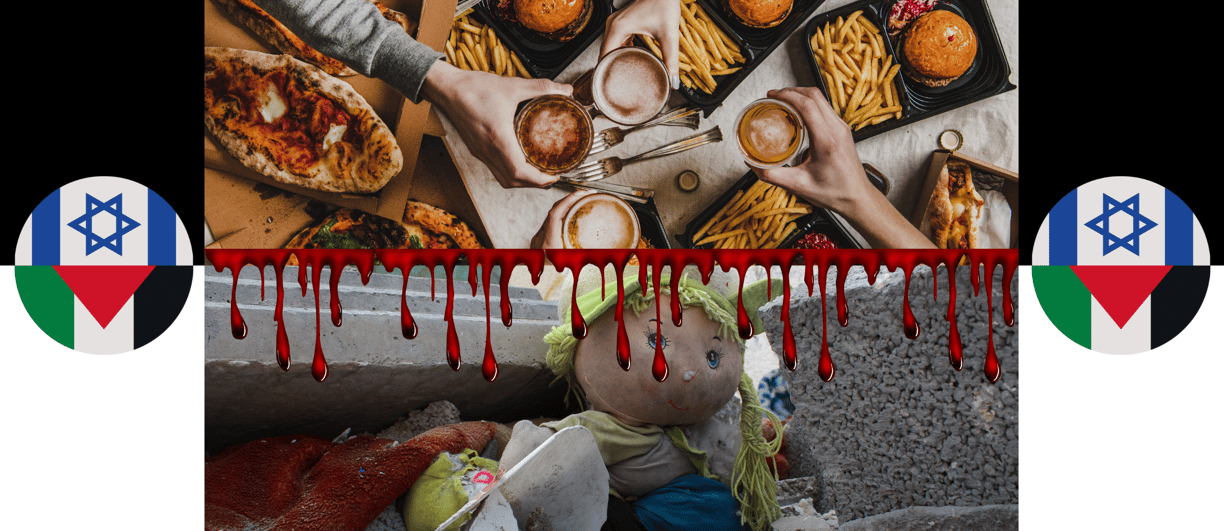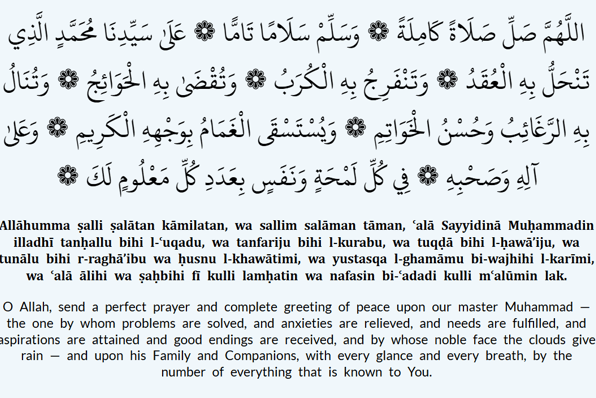Eating Your Way to Complicity
Every Bite Funds the Genocide
Ali Ishtiaq
3/19/20259 min read


The latest wave of Israeli airstrikes on Gaza has once again left the world in shock. Entire families have been wiped out, children buried under rubble, and clinics overflowing with the wounded. In just a matter of days, hundreds of Palestinians, including scores of innocent children, have been slaughtered. The people of Gaza have no safe place to run, no shelters to hide in, and no break from the relentless bombardment. The images of grieving parents, shattered homes, and lifeless bodies should be enough to shake our conscience. But have they?
It is time we ask ourselves: Have we done enough? Have we truly committed to the one action Palestinians have begged of us—boycotting the companies that fund and sustain this genocide? Or are we still making excuses, still indulging in the very brands that fuel Israel’s war machine?
Let’s start with a simple question: How much do you love your Coke? Is it worth more than a Palestinian child’s life? Is that McChicken truly more important than the screams of mothers who have lost everything? Are your cravings for a Zinger Burger more sacred than the blood of those fighting for their existence?
Sounds harsh? Well, reality is harsh. And the reality is that every time you buy from companies directly or indirectly funding Israel, you are financing genocide.
The Illogical Contradiction: We Cry for Gaza, But Still Fund Its Oppressors
We flood our timelines with “Free Palestine” hashtags and repost heart-wrenching images of Gaza. We attend protests, shout slogans, and chant “Boycott Israel”—but guess where we go after the rally? KFC. McDonald’s. A quick sip of Coke. The sheer hypocrisy is stunning.
We want to see justice. We want to see an end to oppression. But how can we expect to dismantle a monster when we are feeding it? Every rupee spent on these brands strengthens the economic backbone of the very forces oppressing Palestinians. It’s like crying for a victim while handing the murderer a loaded gun.
This is not just an emotional appeal—it is a fact. These companies have documented ties to Israel’s economy, military, and occupation machinery. Their profits are directly or indirectly funneled into the state that is bombing schools, hospitals, and refugee camps. Yet, somehow, we pretend that our meal and grocery choices don’t matter.
Palestinians are sacrificing their children, their homes, their very existence for their freedom. And what do they ask of us? Not weapons. Not money. Not even political pressure. Just two simple things:
1. Pray for them sincerely.
2. Stop fueling their oppressors.
And we fail at the second one, miserably.
How did we get here? Have we become so numb, so desensitized, that we are incapable of even this minimal resistance? The argument that a boycott is pointless is absurd—every empire, every corporate giant, and every war machine is driven by economics. Starve them of their profits, and you weaken their power.
Yet, instead of committing to this effort, many of us are still debating whether skipping McDonald’s is “really necessary.” If a Palestinian mother who has just buried her child could hear these excuses, what would she think? Would she see us as allies or as silent enablers?
What’s Stopping Us? An Inconvenience? Really?
The excuses are laughable. “Oh, but KFC is so tasty!” “I grew up on Pepsi!” “McDonald’s fries hit differently.”
Are you serious? Is skipping a burger harder than facing a bomb? Is choosing Next Cola over Coke harder than living in a war zone? If a child in Gaza can survive without food for days under rubble, you can survive without a McChicken.
The truth is, we are addicted. Not just to these brands, but to our own selfish comforts. We feel a momentary sadness for Palestine, then go back to stuffing our faces with the very products funding their suffering.
But let’s dig deeper—why is the boycott moving so slowly? Why haven’t these brands shut down yet?
1. People underestimate their power – The biggest lie we tell ourselves is that "one person’s boycott won’t make a difference." But history proves otherwise. Economic pressure has toppled empires, ended apartheid in South Africa, and changed global policies. Every rupee not spent on an enemy brand strengthens our cause.
2. Cognitive dissonance – Many of us convince ourselves that “it’s just food” or “one meal won’t change anything.” This is psychological denial at its finest. Every purchase either funds the occupation or weakens it—there is no neutral ground.
3. Lack of social reinforcement – Imagine if refusing Coke was as culturally ingrained as refusing alcohol. The problem is, boycott isn’t normalized yet. If every school, mosque, and workplace openly rejected these brands, the shift would be swift.
4. Marketing brainwashing – Let’s not forget: these brands have spent decades embedding themselves in our lifestyle. They’re not just food; they’re status symbols, childhood memories, and comfort food. But here’s the wake-up call—no amount of nostalgia justifies complicity in genocide.
5. Convenience culture – Fast food is fast. People don’t want to take the extra step of finding a local alternative, despite the fact that Pakistan has countless homegrown eateries that serve even better food. The solution? Make boycotting more convenient. Promote local alternatives. Encourage businesses to stop serving enemy brands.
We are not helpless. We just need to care enough to take action.
But What About Jobs? Won’t Boycotting Cause Massive Unemployment?
A common argument against boycotting these brands is that it will lead to massive unemployment in Pakistan. This is a myth. Here’s why:
1. Local Alternatives Will Fill the Gap – When KFC, McDonald’s, and Pepsi lose market share, Pakistani businesses step in. Already, we see brands like Kababjees, Next Cola, and Gourmet Cola gaining traction. When demand shifts, local companies grow, creating even more jobs.
2. Franchises vs. Local Businesses – The majority of fast-food chains like McDonald's and KFC operate on franchises in Pakistan. If they shut down, the infrastructure, workforce, and supply chains remain—and can easily be repurposed by local brands. Imagine an Kababjees replacing every McDonald’s outlet—it’s the same jobs, just under a different employer.
3. New Investment in Pakistani Brands – When people shift spending to local businesses, these businesses expand. More local factories, suppliers, and vendors are needed. Instead of our money flowing abroad, it strengthens our own economy.
4. Self-Sufficiency & Economic Growth – Relying on foreign brands weakens local industries. A successful boycott encourages domestic growth, making Pakistan more self-reliant. The money that once went to multinational corporations stays within our economy, boosting GDP and creating sustainable employment.
Simply put: Boycotting doesn’t destroy jobs—it redirects them to businesses that don’t fund genocide.
Why Not Pakistan Challenging the West?
It’s a fascinating paradox: many people hesitate to make small sacrifices like boycotting Pepsi or McDonald's, yet they expect their government to take a strong stance against Western powers, even though the consequences for the nation would be far harsher than a simple boycott.
This contradiction highlights a deeper issue of responsibility, awareness, and the psychology of sacrifice. Let's delve on why it happens, why it is flawed thinking, and how to shift responsibility toward effective grassroots action instead of demanding unrealistic government intervention.
The Illusion of Government Power
• Many people believe governments are responsible for everything, including fighting injustice on a global scale.
• They think leaders have the power to stand up to Western hegemony without severe consequences for the economy and the nation.
• They don’t realize that direct confrontation would lead to sanctions, economic collapse, or even regime change efforts.
Reality Check: Governments of third-world countries like Pakistan are not free to make independent geopolitical decisions without repercussions.
The Psychological Comfort of Delegating Responsibility
• People prefer to shift the burden to the government rather than taking individual responsibility.
• It is easier to demand that politicians fight for Palestine than to change daily habits like not drinking Pepsi or not eating McDonald's.
• This is a form of moral outsourcing—instead of acting themselves, people want the state to act for them.
Reality Check: Governments act based on the will of the people. If people are unwilling to make small sacrifices, why would the government take bigger risks?
The Myth of Collective Sacrifice
• When people hear that Pakistan might be sanctioned or banned for challenging Western powers, they suddenly find national sacrifice acceptable.
• They romanticize the idea of a national struggle but hesitate when it comes to individual effort like a simple boycott.
• This is a double standard—they want their country to suffer collectively, but they refuse to inconvenience themselves personally.
Reality Check: If people are truly willing to make sacrifices, why not start with small, meaningful actions like boycotting brands tied to Israel?
So What Happens If the Pakistani Government Directly Challenges the West?
Sanctions & Economic Collapse: The IMF, World Bank, and Western allies could impose severe economic restrictions, worsening inflation and unemployment. For exxample, Iran – Its strong anti-Western stance led to crippling sanctions that hurt ordinary citizens more than the elite.
Trade & Investment Losses: Western corporations might pull out of Pakistan, causing job losses. Exports to Europe and the U.S. could face restrictions, harming industries like textiles, IT, and agriculture.
Diplomatic Isolation & Military Pressure: Pakistan could lose diplomatic support at the UN and other international platforms. Western powers could pressure allies like Saudi Arabia and UAE to distance themselves from Pakistan.
Reality Check: The price of direct government confrontation is too high—it would hurt millions of Pakistanis rather than the few who are inconvenienced by a boycott.
What Happens If People Boycott Instead?
1. Corporations Lose Profits Without Government Intervention
Multinational brands suffer revenue losses, forcing them to rethink their stance.
No one can blame the government since it is an organic movement of consumers.
Example: BDS (Boycott, Divestment, & Sanctions) Movement – Israel has lost billions in foreign investment due to grassroots boycotts.
2. Western Powers Have No Justification for Retaliation
If the government bans Coca-Cola, the U.S. could impose trade sanctions.
But if millions of Pakistanis just stop buying Coca-Cola, no government action is needed, and the West has no excuse to retaliate.
Reality Check: A people-led economic movement is far more effective and safer than direct state action.
From Awareness to Action: Boycott, Pray & Give
We've talked enough. Now it’s time to act.
1. Boycott with Absolute Commitment
This is an economic war. If we stand with Palestine, we must:
✅ Completely cut off McDonald's, KFC, Pepsi, Coke, Nestlé, and other companies associated with Israel regime. We all know who are the culprits now so I don't have to elaborate on the list.
✅ Avoid businesses that stock these products.
💰 Every rupee spent on them funds Palestinian bloodshed.
2. Make Boycotting a National Culture
❌ Buying from these brands should be as shameful as drinking alcohol.
📢 Schools, businesses, and mosques must drive awareness.
👊 Influencers, scholars, and media must lead the campaign.
3. Create Economic Pressure on Franchise Owners
These businesses only care about profit. If we cut sales, they:
🔹 Shut down OR
🔹 Pressure parent companies to stop funding Israel.
4. Strengthen Local Alternatives
🍔 Ditch McDonald’s & KFC → Support local alternatives.
🥤 Ditch Coke/Pepsi → Drink Next Cola, Gourmet, or other local alternatives.
🥛 Ditch Nestlé → Buy from local dairy brands.
5. Give for Gaza – Donate Generously
💰 Reach into your pocket and donate in whatever way possible.
🏥 Support medical aid, food, and emergency relief efforts.
🤲 Help the suffering in every way you can.
6. This Ramadan – Act & Pray
Now is the best time to pray for Gaza.
🛐 Make dua, especially at Tahajjud.
📖 Arrange Quran Khatam for Palestinians.
💥 Recite regularly Salatul Narriya for their victory.
This precious form of blessing Prophet Muhammad (peace be upon him) called “Salatu an-Nariyah ", in Arabic " an-Nar " – means fire, in the sense that it "has a very rapid effect, as fire". People of Maghreb (Morocco) often use this form of blessing Prophet Muhammad (peace be upon him) by repeating it 4444 times when caught in difficult situations - for receiving relief and help from God Almighty. It is also referred to as "Salatu al-Tafrijiyah", which means in Arabic "Farraja” – to ease, that is for “receiving relief from troubles”.
It is also popular as "salatu al-Qurtubiyah, attributing its name to the Grand Imam, interpretator of Quran 'Tafsir al-Qurtubi" Abu Abdullah Muhammad ibn Abubakr ibn Farkh al-Ansari al-Khazraj al-Andalus al-Qurtubi (died In 671 Hijri). Concerning this salawat Imam al-Qurtubi said: "Anyone who wishes to accomplish an important task or remove befallen troubles - let him recite this salawat with relevant intention 4444 times, and ask God through the Prophet Muhammad (peace be upon him) (i.e. making tawassul through the Prophet) - then Allah Almighty will give him assistance in achieving his goal, corresponding to his intention."
Then he says: "He who reads this salawat 41 or 100 times or more daily, the Creator of all creatures will relieve him from all his difficulties and problems. God will save him from any harm that may threaten him, and will ease all his affairs. His soul will be illuminated by the light of God, his provision (rizq) will be increased, the gates of benefits will be opened, his instructions would be followed when he is in power, he will be immune to all trials and misfortunes of the time, will be saved from hunger and poverty. Almighty God will inspire the hearts of the people honor and respect to him. God will not refuse him, whatever he asks. "
All that we have mentioned above requires continuous reading of the Salawat.
Shaikh Muhammad Al-Tunisi said: "He who reads this Salawat 11 times every day, will receive provision as the torrential rain - and as plant emerging out of the ground”. It is also said that this Salawat is a treasure of treasures of God, and reading it is the key to these treasures: they are open to those servants of God, who always read it - and thus they can achieve what they want.
Reading it for the sake of healing from serious illness, God Almighty may improve patient’s condition. This and other such salawats and prayers are the blessings of Allah to His creatures, since we use them and get results from God because of grace (barakat) of salawat.
It is recommended for everyone to read it 4444 times individually - or in group gathering - for any purpose permitted by Shariah, and also for the protection from any troubles and possible disasters in the future.
Final Thought: The Time for Words is Over – Act Now!
Every second we delay, more bombs fall on Gaza. More children die. More innocent lives are lost.
What’s stopping you? A craving? A habit? A little inconvenience? Shame on us if that’s the case.
Boycott now. Boycott fully. Boycott until they collapse.
This is not just activism. This is an obligation.




